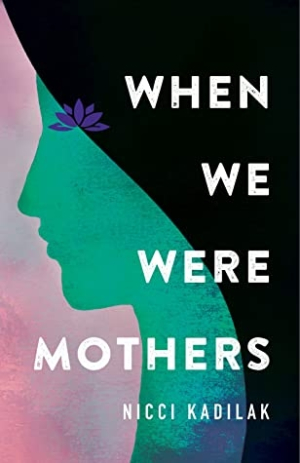When We Were Mothers
Human beings strive for autonomy in the face of stringent laws in the dystopian novel When We Were Mothers.
In Nicci Kadilak’s speculative thriller When We Were Mothers, women’s secrets are threatened in a society wherein people’s views about freedom of choice in reproduction and birthing have changed.
In the future, natural childbirth is rare. Infants are sterilized under the guise of “safeguarding.” Most people, having dispensed with menses and childbearing, pick traits using an application and rely on a regulated nursery womb to create their children. But an alternative Garden Society run by women encourages others to follow in the old ways.
Lucinda, who was raised to go through the bodily changes that were once normal and that now seem renegade, vows to help restore facets of womanhood. When she assists as a midwife to her friend Celeste, though, Celeste dies, stirring fears about the Society’s exposure. A detective expresses doubts about the cover-up, leading to suspense. Though his deductions about what happened are swift, a strong sense of foreboding is maintained—and deepened when his family’s entanglements with the situation reveal that the investigation is personal too.
Lucinda is a compelling heroine—loyal to the Garden Society but also rattled by recent events. Despite knowing that dying in childbirth is rare, she’s worried about what sacrifices the Garden Society is willing to accept to maintain their ways. And one of her friends is distressed about the mothers who lead the Garden Society, including Lucinda’s mother, whose aloof leadership inspires unease. As the women gather, the Society’s goals become clear, building intrigue as it relates to continued trust. Their relationships are intricate: people express empathy toward Celeste’s widower even as they worry that he might betray the Garden Society. Elsewhere, Lucinda’s friendship with a fellow society member is strained by their differences even as it is guided by shared histories.
In a broad way, the novel is concerned with who gets to decide what women’s purposes are. While modern views are suggested as a form of liberation from the oppressive inconvenience of childbirth, natural childbirth is still seen as an ancient “truth.” This is rendered in complex terms, such that even younger Garden Society members fret about their fates.
Subtle world building depicts a controlled state through technologies that monitor everything from people’s health statuses to the levels of food in their autochefs. Careful details about how the Garden Society circumnavigates laws enhance the eerie atmosphere. When a second suspicious tragedy unfolds, it sets the stage for confrontation. Galvanized by her sense of duty, Lucinda develops a plan to help her fellow women. This results, though, in a less satisfying, tentative conclusion that pivots around a speech and too-rapid expressions of empathy.
In the futuristic novel When We Were Mothers, women are on a mission to salvage their clandestine group’s ideals.
Reviewed by
Karen Rigby
Disclosure: This article is not an endorsement, but a review. The publisher of this book provided free copies of the book and paid a small fee to have their book reviewed by a professional reviewer. Foreword Reviews and Clarion Reviews make no guarantee that the publisher will receive a positive review. Foreword Magazine, Inc. is disclosing this in accordance with the Federal Trade Commission’s 16 CFR, Part 255.

